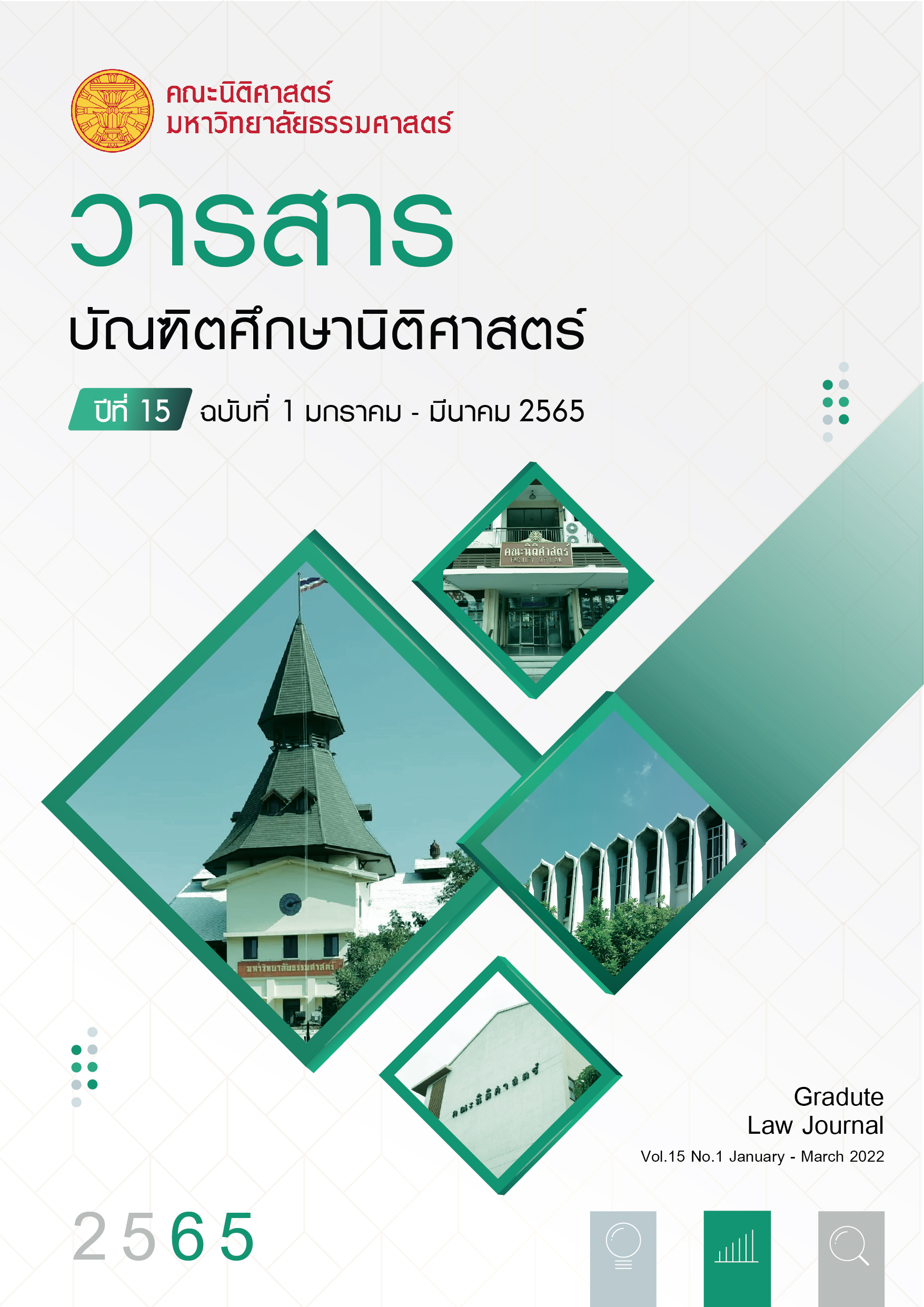ปัญหาทางกฎหมายว่าด้วยการใช้สิทธิรักษาพยาบาล กรณีเจ็บป่วยฉุกเฉินวิกฤต : ศึกษากรณีโรงพยาบาลเอกชน
คำสำคัญ:
สิทธิการรักษาพยาบาล เจ็บป่วยฉุกเฉินวิกฤต บริการสาธารณสุขบทคัดย่อ
การเข้าถึงบริการการแพทย์และสาธารณสุขในภาวะเจ็บป่วยฉุกเฉินวิกฤต นับว่าเป็นสิทธิมูลฐานของปัจเจกชนในการได้รับการรักษาที่มีประสิทธิภาพและทันท่วงทีต่อสถานการณ์ความเจ็บป่วย โดยไม่คำนึงถึงความแตกต่างของฐานะทางเศรษฐกิจหรือความแตกต่างอื่นใด ดังนั้น รัฐบาลไทยจึงกำหนดนโยบายสิทธิการรักษาในภาวะเจ็บป่วยฉุกเฉินวิกฤตโดยไม่เสียค่าใช้จ่ายในทุกพื้นที่และตรากฎหมายขึ้นรองรับและบังคับการให้เป็นไปตามสิทธิจากการบังคับใช้กฎหมาย โรงพยาบาลเอกชนหลายแห่งต้องประสบปัญหาด้านค่าใช้จ่ายเนื่องจากการได้รับค่าชดเชยที่อาจไม่เหมาะสม ทั้งบทบัญญัติที่ให้ความคุ้มครองกลุ่มอาการภาวะเจ็บป่วยฉุกเฉินวิกฤตมีเนื้อหาที่ไม่ครอบคลุม แพทย์ไม่มีดุลพินิจเป็นที่สุดในการวินิจฉัยส่งผลให้เกิดปัญหาในทางปฏิบัติต่อการรับผู้ป่วยไว้รักษาในโรงพยาบาล นอกจากนี้กลไกการบังคับให้เป็นไปตามกฎหมายเชิงบทลงโทษโดยหน่วยงานภาครัฐยังคงมีความซ้ำซ้อนทั้งด้านอำนาจหน้าที่และรูปแบบของบทลงโทษตามกฎหมาย จากการศึกษาเปรียบเทียบพบว่า กฎหมายการแพทย์ฉุกเฉินในประเทศอังกฤษและประเทศสหรัฐอเมริกามีการจ่ายค่าชดเชยให้แก่โรงพยาบาลเอกชนที่เข้าร่วมโครงการของรัฐในหลายรูปแบบ มีการให้ความคุ้มครองภาวะเจ็บป่วยฉุกเฉินที่ครอบคลุมโดยแพทย์ผู้ทำการรักษาเป็นผู้วินิจฉัย ตลอดจนกลไกการบังคับให้เป็นไปตามกฎหมายโดยหน่วยงานภาครัฐที่มีความแตกต่างจากกฎหมายของไทย การศึกษาเชิงเปรียบเทียบในบทความนี้จะนำไปสู่แนวทางในการพัฒนากฎหมายว่าด้วยสิทธิการรักษาพยาบาลในภาวะเจ็บป่วยฉุกเฉินวิกฤตที่จะสร้างดุลยภาพระหว่างโรงพยาบาลเอกชนต่อบทบาทหน้าที่ในการดำเนินงานเพื่อสาธารณประโยชน์ด้านการสาธารณสุขของภาครัฐที่มีประสิทธิภาพต่อไป
ดาวน์โหลด
เผยแพร่แล้ว
ฉบับ
ประเภทบทความ
สัญญาอนุญาต
ลิขสิทธิ์ (c) 2022 บัณฑิตศึกษานิติศาสตร์

อนุญาตภายใต้เงื่อนไข Creative Commons Attribution-NonCommercial-NoDerivatives 4.0 International License.
บทความหรือข้อความคิดเห็นใด ๆ ที่ปรากฏในวารสารบัณฑิตศึกษานิติศาสตร์เป็นความรับผิดชอบของผู้เขียนบทความโดยเฉพาะ คณะนิติศาสตร์ มหาวิทยาลัยธรรมศาสตร์ และกองบรรณาธิการไม่จำเป็นต้องเห็นด้วย



